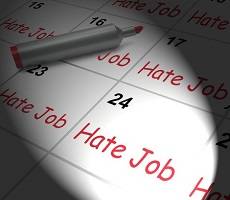November 25, 2016
Dissatisfaction with work-life balance is more and more likely to be a reason to quit 0
The term ‘work-life balance’ has been promised by large corporations for years – and it now could finally become a key factor choosing a career. According to a worldwide survey, the upcoming generation of Y and Z workers demand more flexibility, less face-time, and rather than having to account for half-day annual leave, attending school plays or meetups, expect to be trusted to do the job on their terms. However, the research by Emolument also claims that in some industries, implementing such a shift in perception and practice is still a long way off, as client demands in terms of reactivity and timeliness remain unchanged. Employers do understand that dissatisfaction with work-life balance is more and more likely to be a reason for quitting though, and that higher pay struggles to compensate for time spent away from family and friends. With more pressure on women to cover for childcare commitment, housework and logistics, 42 percent of women say they’ve a bad work/life balance compared to 33 percent of men.














 When former Google employee Marissa Mayer joined Yahoo as its CEO in 2012, she inherited the company’s vast problems. Though it was once seen as one of the first tech behemoths, Yahoo’s inability to come up with ground breaking products like Google and others, put it in a slow, steady decline. Mayer was immediately tasked with trying to reinvigorate the stagnating company. Her focus was to find a way to identify and retain talent, while phasing out ineffective employees. However, Yahoo’s new management policies have brought about much debate and criticism from HR experts. A controversial book by journalist Nicholas Carlson titled “Marissa Mayer and the Fight to Save Yahoo!” paints a highly critical view of Mayer’s first years as CEO. In response others have defended her, arguing that she has done the best she can with the resources available, but has become a scapegoat for poor management, like so many other women in powerful positions.
When former Google employee Marissa Mayer joined Yahoo as its CEO in 2012, she inherited the company’s vast problems. Though it was once seen as one of the first tech behemoths, Yahoo’s inability to come up with ground breaking products like Google and others, put it in a slow, steady decline. Mayer was immediately tasked with trying to reinvigorate the stagnating company. Her focus was to find a way to identify and retain talent, while phasing out ineffective employees. However, Yahoo’s new management policies have brought about much debate and criticism from HR experts. A controversial book by journalist Nicholas Carlson titled “Marissa Mayer and the Fight to Save Yahoo!” paints a highly critical view of Mayer’s first years as CEO. In response others have defended her, arguing that she has done the best she can with the resources available, but has become a scapegoat for poor management, like so many other women in powerful positions.
 Badly run and overrunning meetings remain amongst the main sources of workplace conflict and unhappiness, according to a study of 1,000 US employees from workplace software provider
Badly run and overrunning meetings remain amongst the main sources of workplace conflict and unhappiness, according to a study of 1,000 US employees from workplace software provider 














May 20, 2016
It isn’t easy to grow big when being small makes you more innovative 0
by Matias Rodsevich • Comment, Technology, Workplace, Workplace design
(more…)